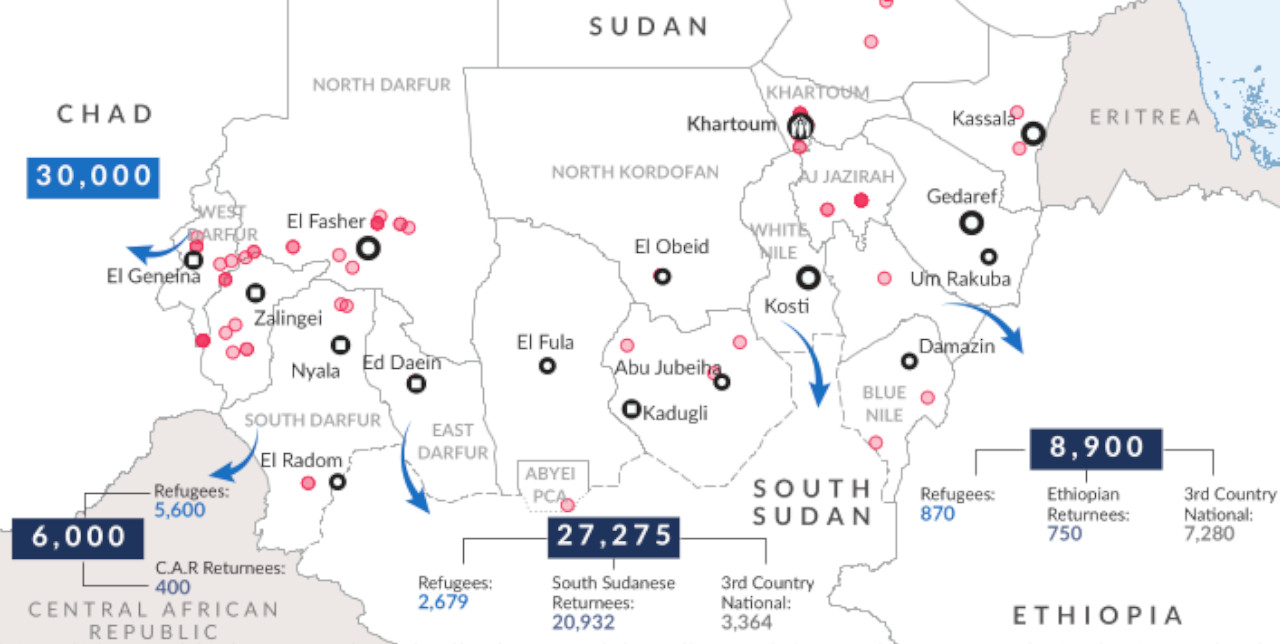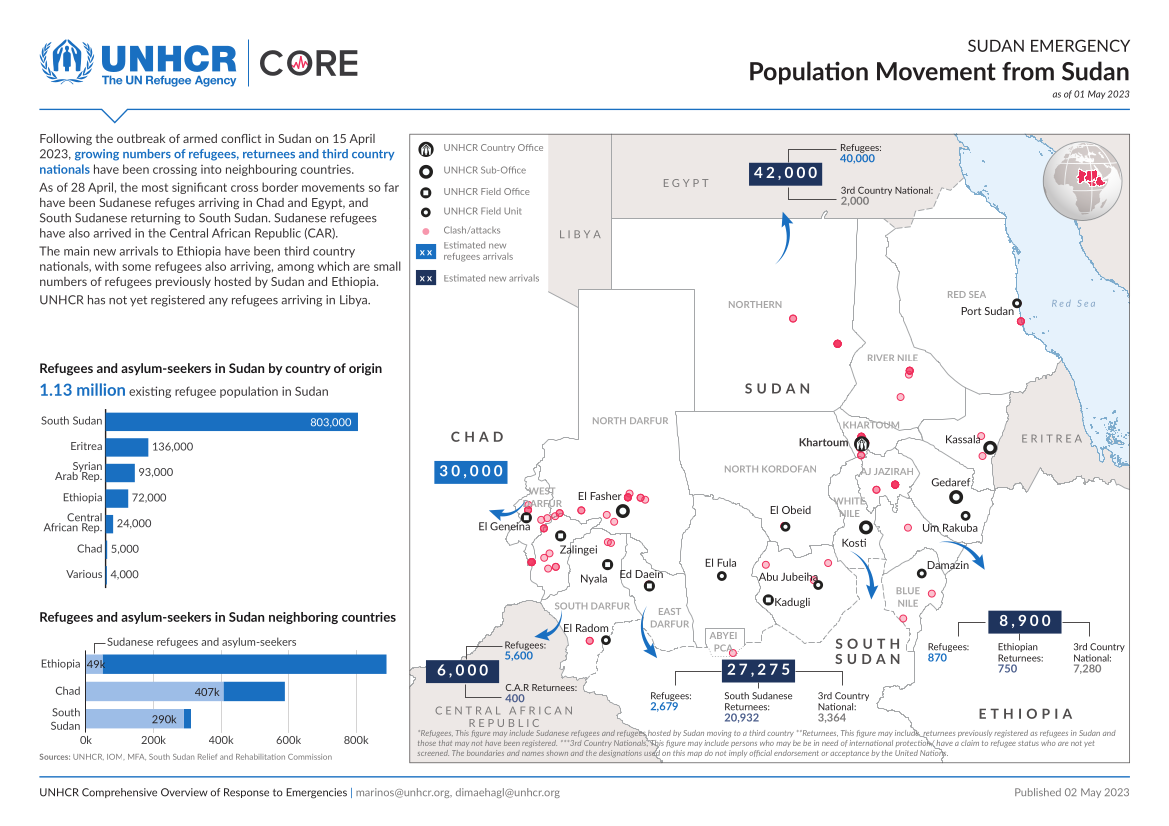03-05-2023 | di COOPI
Sudan. International NGO Forum's call
Sudan INGO Forum, to whom COOPI - Cooperazione Internazionale takes part, calls on conflict parties to ensure protection of civilians, including aid workers and assets, and allow for the immediate scale-up of life-saving humanitarian assistance.
The ongoing and escalating violence across Sudan has directly impacted thousands of civilians, resulting in loss of life, widespread destruction of civilian infrastructure and complete disruption of basic services. Despite the announcement of consecutive 72-hour ceasefires and humanitarian pauses by SAF and RSF clashes have continued largely unabated. At least 450 people have been killed – including at least five humanitarian workers, and over 3,700 people have been injured. Acute shortages of food, water and fuel for electricity cause immense suffering for those trapped in conflict-affected exacerbating the already challenging humanitarian situation in the country.
The conduct of hostilities, including the use of heavy artillery and aerial bombing in densely populated civilian areas, and the intrusion and occupation of civilian homes by armed actors, has a devastating impact on the civilian population. Thousands of people have been displaced, often taking shelter in schools and other public buildings in neighbourhoods and states less impacted by the fighting. Others have been forced to make long journeys to Sudan’s neighbouring countries attempting to seek asylum in Chad, South Sudan, Ethiopia and Egypt. Many remain trapped by the ongoing fighting, unable to navigate the myriad of checkpoints and afraid to move due to shelling, air strikes and gunfire. For more information, please click on the image below.
The health sector is on the verge of collapse. At least 11 Health facilities have been attacked and a further 57 have been put out of service. Those remaining facilities are stretched beyond capacity and face a severe shortage of supplies, water, power/fuel and personnel – many of whom have also evacuated.
The urgency of the situation cannot be overstated. The ongoing violence has directedly impacted aid operations and is preventing life-saving assistance from reaching millions in need. Five humanitarian workers have been killed, others injured, and humanitarian premises, supplies and vehicles have been looted. Whilst NGOs are making every attempt to continue reaching people in need where it is safe to do so, many vital programmes and services have been suspended with potentially devastating consequences for the millions of people who rely on humanitarian aid.
Sudanese communities, civil society and national NGOs are doing their best to respond in incredibly difficult circumstances. There are reports of communities mobilising to provide aid where they can, however significant international humanitarian assistance is required to meet escalating needs.
The deteriorating situation in Sudan comes at a time when an estimated 15.8 million people in the country - a third of the population - are already in need of humanitarian aid, the highest figure in a decade. Furthermore, humanitarian funding to meet existing caseloads was already severely overstretched, with only 13.5% of the 2023 Humanitarian Response Plan financed despite record needs.
Whilst several INGOs have been forced to relocate staff from conflict-affected areas to ensure their safety, the Sudan INGO Forum remain fully committed to supporting crisis affected populations in Sudan and resuming as a matter of urgency essential programmes and scaling up the humanitarian response. To support this response, urgent efforts are required to enable the safety and security of aid workers and assets, enable safe passage for critical humanitarian supplies, including cash and fuel, and provide additional flexible funding to address the growing needs.
The Sudan INGO Forum calls for the following:
- Conflict parties must ensure respect for International Humanitarian Law including the protection of civilians: The civilian population and civilian services and infrastructure must not be harmed. Vital infrastructure, including water and medical facilities, residential homes and education facilities must be protected to reduce suffering and loss of life.
- Protection of Aid Workers and assets: SAF, RSF and all conflict parties must provide guarantees to safeguard humanitarian personnel and assets and ensure compliance across their troops. Humanitarian actors must be able to reach people in need and provide life-saving assistance and protection.
-
Facilitate unimpeded humanitarian access and reduce administrative procedures to expedite the delivery of humanitarian assistance and the entry of humanitarian workers into the country without delay – including facilitating visas from Sudanese embassies abroad to allow aid workers to return to the country. Additional resources, such as Civil-Military Coordination, humanitarian negotiations specialists and increased security analysis will also be required to support humanitarian organisations reach people in need.
-
Additional and flexible humanitarian funding to facilitate an urgent humanitarian response to the escalating needs. Donors must be prepared to redirect existing programmes in Sudan to meet critical gaps, provide sufficient flexibility to organisations to adapt to the new operational challenges and provide support to local and national actors, including emerging community-led initiatives who are providing critical frontline response.




 Sudan
Sudan
